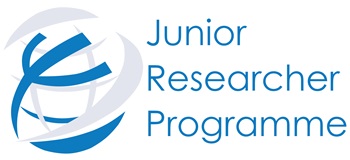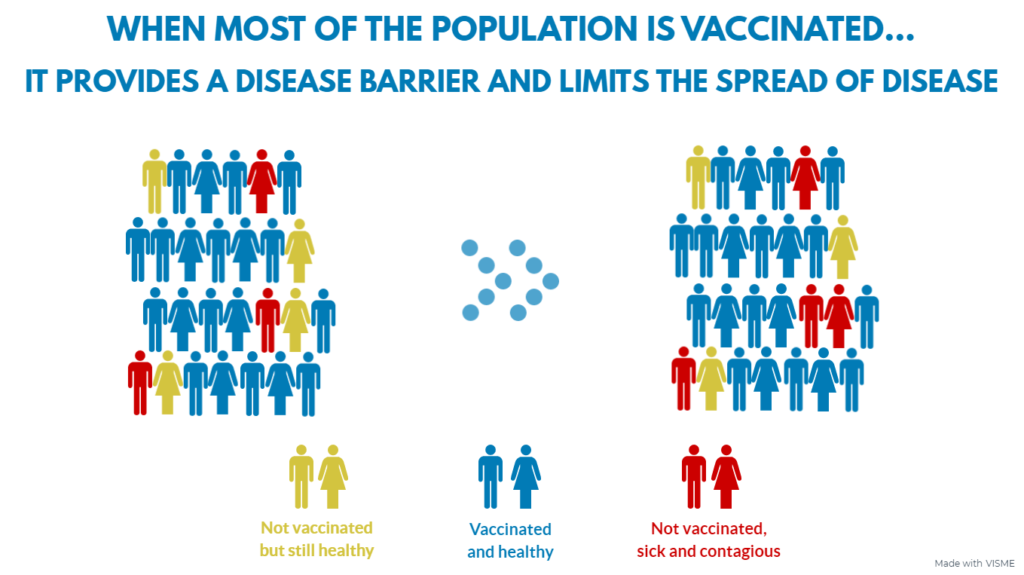We are thrilled to share that a research team from the 2019-2020 cohort has recently published their research as a Registered Report in the British Journal of Health Psychology. Supervised by Aleksandra Lazić, the team consisted of Kalina Kalinova, Jali Packer, Riinu Pae, Marija Petrović, Dora Popović, Elisabeth Sievert and Natalie Stafford-Johnson.
The team conducted an experimental study in the UK, which successfully replicated the finding that explaining community benefits of achieving herd immunity through vaccination increases vaccination intentions. They additionally explored the roles of descriptive social norms (vaccination behaviour of others) and the herd-immunity threshold (coverage needed to stop disease transmission). You can find the full article Open Access here.
We congratulate the team on this great achievement and for their important contribution to a highly relevant area of research. Below you can find an interview with some of the team members about how being part of the JRP has impacted them and their research.
How did your time at the JRP influence/help you as a (junior) researcher?
Aleksandra: The JRP selected students who were motivated for our research topic so I had great conditions to have a go at mentoring and supervising; as a second-year PhD student at that time, I hadn’t had the opportunity to do that before. Also, as the lead of the team, I had to learn to be more confident and proactive when making research decisions so that our project could go as planned.
Elisabeth: The JRP provided an excellent opportunity for me to explore the research world by carrying out a study of personal relevance together with a motivated team. This experience played a major role in figuring out what path I wanted to embark on after my studies.
Dora: Being part of my research team and the whole JRP community helped me in both my professional path and with my personal growth. Not only did I have a once in a lifetime opportunity to work alongside amazing young researchers with similar interests, learn from them and expand my research horizons, but being part of a JRP also gave me courage and support to follow my professional dreams anywhere I want.
Jali: JRP was a unique opportunity and one I feel incredibly grateful to have had. The chance to work with a highly talented and motivated team across multiple countries really broadened my research experience and interest in psychology. Having moved into industry, JRP was a great way to keep one foot in academia over the past few years.
What was the biggest learning experience for you as a team?
Aleksandra: After the jSchool, we did all of our work remotely so we had to find (and learn) ways of communicating and collaborating effectively. This also meant adjusting to each other’s schedules and time zones – many Doodle polls were sent! Just as we were approved for data collection by the journal, the pandemic hit. As a team, we had to adapt to new circumstances and create a new project timeline; the trust we had built as a team and the procedures we had set up helped us cope with that challenge.
Elisabeth: I would say the biggest learning experience was the submission of the Registered Report and the advantages that come with it. I must admit we were lucky too with the journal and its editorial process – but it was also very helpful experiencing how this procedure can improve our research process by receiving reviewer comments before carrying out the study and knowing that our findings would get published even if they did not confirm our hypotheses.
Dora: I have to say that it is pretty hard to name one learning experience, since there was a whole lot of it during the past years: we tackled with a rather complex experimental design, got pretty creative with our methods, grasped open science practices, all in the context of the global pandemic! It makes me proud that we as a team managed to cope with all the challenges and got to this final point.
Jali: Our team was lucky enough to have an end-to-end view of the whole research process, from ideation all the way to publication (which for many of us was our first!) and all of the many highs and lows along the way. It’s hard to distil that to the biggest learning experience but overall I’d say the importance of communication and clear division of roles and responsibilities, which we managed even despite the challenges the pandemic brought.
Which role do you think that replications and open science practices currently play in psychological science, and how do you think psychological science can be advanced in the future?
Aleksandra: Moving forward, preregistrations and Registered Reports should continue to be encouraged – these practices increase the transparency of the research process and, if done right, can ensure the robustness and reproducibility of the findings. To improve the trustworthiness of psychological science, we need more journals to accept direct replications and adopt Open Science practices. We also need more funding opportunities for students and researchers from the Majority World countries in order to support data collection in underrepresented areas.
Elisabeth: I think open science practices are becoming more important and are also integrated more within academic curriculums nowadays, which will hopefully mean that they will become the norm in the future. I hope replication studies will enable psychological science to have more confidence in scientific findings and apply them to real-world problems that we are dealing with.
Dora: Junior Research Programme is the first place where I had a chance to learn more about replications and open science in general, and I am so glad we had a chance to publish our paper as a Registered Report and see how it works in practice too. I think it is a great way for popularizing psychological findings, as well as to reduce any potential biases in the publishing process.
Jali: I’m incredibly happy that we submitted a registered report for our study and this was an approach I’ve also adopted and encouraged elsewhere in the studies I’ve been involved with. To raise the importance of open science early in researchers’ careers is incredibly important and credit to JRP for emphasising this. Moving forwards, open science practices can continue to advance psychological science and build trust by the public, policy makers and academics.

